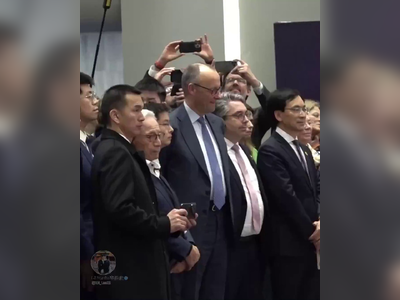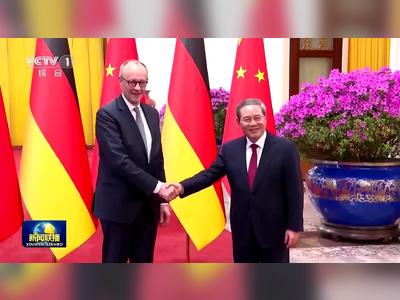
Trump Suggests Establishing a New Agency to Gather Revenue from International Sources
President-elect Donald Trump declares the establishment of the 'External Revenue Service' to gather tariffs and duties, marking a change in U.S. trade policy as his inauguration nears.
President-elect Donald Trump announced on Tuesday a plan to establish a new government agency, the 'External Revenue Service,' designed to gather tariffs, duties, and other revenue from international sources.
This initiative coincides with his preparation to introduce new import tariffs when his second term begins on January 20. Trump, who shared the news on Truth Social, argued that Americans have been excessively taxed by the Internal Revenue Service for too long, suggesting that foreign entities benefiting from U.S. trade haven't been contributing their fair share.
The proposal implies a significant restructuring of U.S. revenue collection to focus on foreign sources, though details are still unclear.
Trump has not specified whether this new agency would take over the role of U.S. Customs and Border Protection in collecting tariffs or replace the IRS's duty of collecting taxes on foreign corporate and individual income.
The announcement has sparked concerns about the potential for increased government bureaucracy, potentially conflicting with Trump's previous efforts to streamline government functions, like his informal Department of Government Efficiency led by Elon Musk and Vivek Ramaswamy.
Trump's idea of replacing income taxes with tariffs, which was discussed during his campaign, has been met with skepticism.
Economists, including those from the Tax Foundation, contend that a 20% tariff would generate significantly less revenue than the current tax system, projecting $3.3 trillion over 10 years versus the IRS's annual revenue of up to $18 trillion.
Senator Ron Wyden, the senior Democrat on the Senate Finance Committee, criticized Trump's plan as a concealed tax increase on American families and small businesses.
Trump has proposed specific tariff rates, including a 10% tariff on global imports, a 25% tariff on imports from Canada and Mexico, and a 60% tariff on Chinese products.
Experts caution that these tariffs could disrupt trade, raise costs, and lead to retaliation against U.S. exports, further complicating the U.S. trade environment.
This initiative coincides with his preparation to introduce new import tariffs when his second term begins on January 20. Trump, who shared the news on Truth Social, argued that Americans have been excessively taxed by the Internal Revenue Service for too long, suggesting that foreign entities benefiting from U.S. trade haven't been contributing their fair share.
The proposal implies a significant restructuring of U.S. revenue collection to focus on foreign sources, though details are still unclear.
Trump has not specified whether this new agency would take over the role of U.S. Customs and Border Protection in collecting tariffs or replace the IRS's duty of collecting taxes on foreign corporate and individual income.
The announcement has sparked concerns about the potential for increased government bureaucracy, potentially conflicting with Trump's previous efforts to streamline government functions, like his informal Department of Government Efficiency led by Elon Musk and Vivek Ramaswamy.
Trump's idea of replacing income taxes with tariffs, which was discussed during his campaign, has been met with skepticism.
Economists, including those from the Tax Foundation, contend that a 20% tariff would generate significantly less revenue than the current tax system, projecting $3.3 trillion over 10 years versus the IRS's annual revenue of up to $18 trillion.
Senator Ron Wyden, the senior Democrat on the Senate Finance Committee, criticized Trump's plan as a concealed tax increase on American families and small businesses.
Trump has proposed specific tariff rates, including a 10% tariff on global imports, a 25% tariff on imports from Canada and Mexico, and a 60% tariff on Chinese products.
Experts caution that these tariffs could disrupt trade, raise costs, and lead to retaliation against U.S. exports, further complicating the U.S. trade environment.
Translation:
Translated by AI
AI Disclaimer: An advanced artificial intelligence (AI) system generated the content of this page on its own. This innovative technology conducts extensive research from a variety of reliable sources, performs rigorous fact-checking and verification, cleans up and balances biased or manipulated content, and presents a minimal factual summary that is just enough yet essential for you to function as an informed and educated citizen. Please keep in mind, however, that this system is an evolving technology, and as a result, the article may contain accidental inaccuracies or errors. We urge you to help us improve our site by reporting any inaccuracies you find using the "Contact Us" link at the bottom of this page. Your helpful feedback helps us improve our system and deliver more precise content. When you find an article of interest here, please look for the full and extensive coverage of this topic in traditional news sources, as they are written by professional journalists that we try to support, not replace. We appreciate your understanding and assistance.











